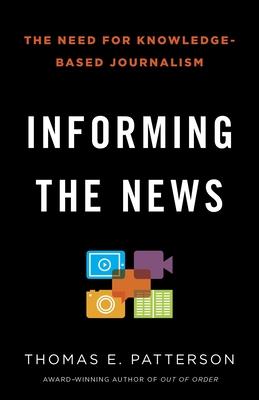As the journalist Walter Lippmann noted nearly a century ago, democracy falters "if there is no steady supply of trustworthy and relevant news." Today's journalists are not providing it. Too often, reporters give equal weight to facts and biased opinion, stir up small controversies, and substitute infotainment for real news. Even when they get the facts rights, they often misjudge the context in which they belong.
Information is the lifeblood of a healthy democracy. Public opinion and debate suffer when citizens are misinformed about current affairs, as is increasingly the case. Though the failures of today's communication system cannot be blamed solely on the news media, they are part of the problem, and the best hope for something better.

Informing the News: The Need for Knowledge-Based Journalism
As the journalist Walter Lippmann noted nearly a century ago, democracy falters "if there is no steady supply of trustworthy and relevant news." Today's journalists are not providing it. Too often, reporters give equal weight to facts and biased opinion, stir up small controversies, and substitute infotainment for real news. Even when they get the facts rights, they often misjudge the context in which they belong.
Information is the lifeblood of a healthy democracy. Public opinion and debate suffer when citizens are misinformed about current affairs, as is increasingly the case. Though the failures of today's communication system cannot be blamed solely on the news media, they are part of the problem, and the best hope for something better.